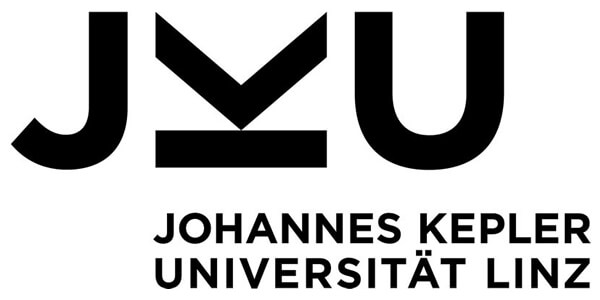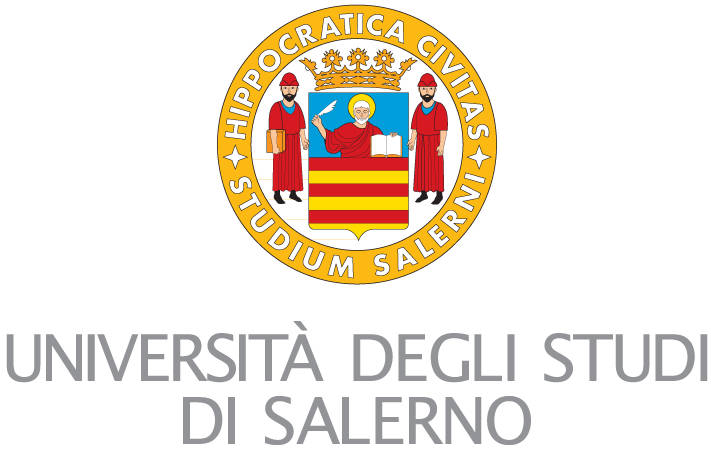TUSAIL involves academic–industrial collaborations across many industrial sectors to deliver joint PhD training programmes.
The academic and industrial partners work together to define the projects, each with excellent opportunities to work with industrial organisations.
Lorem ipsum dolor sit amet consectetur adipisicing elit. Nesciunt, nisi est cupiditate totam laudantium qui voluptatibus voluptas officia id, alias inventore, odio ullam at tempore doloremque dolores voluptatum et! Culpa.
Lorem ipsum dolor sit amet consectetur adipisicing elit. Sint repellat exercitationem repudiandae vitae eum voluptatibus mollitia molestias laborum laboriosam at.

The University of Edinburgh is the leading research university in Scotland and is amongst the top ten in the United Kingdom. Results of the 2014 Research Excellence Framework reveal that 83% the University’s research activity is in the highest categories - 4* and 3*- which are classified as ‘world leading’ or ‘internationally excellent’. Based on the quality of its research, the University of Edinburgh has been rated fourth in the UK and by far the most successful university in Scotland.
Within the College of Science and Engineering, both fundamental research and application-specific consultancy are conducted on particulate solids, bulk handling and industrial infrastructure. The longstanding focus of this research group focusing on particulate materials is to develop new scientific insights using a combination of simulation tools, extensive experimentation and analytical methods; and to develop innovative engineering designs and solutions.

The Faculty of Engineering Technology at the University of Twente is the link between science, research, technology and social sciences, and participated in various FP6, FP7 and Horizon2020 projects. Mechanical Engineering, Civil Engineering and Industrial Design form a unique combination for both research and training, with approximately 2.200 bachelor's and master's students, 440 employees and 150 PhD candidates.
The Multi-Scale Mechanics (MSM) research group, part of the Thermal and Fluids Engineering department, focuses on mechanical processes where distinct scales are interacting, e.g., granular systems, non-Newtonian fluids, porous media, and non-linear, micro-structured modern materials. The research group MSM is headed by Prof. dr. rer.-nat. Stefan Luding.

The Technical University of Braunschweig was founded in 1745 and is the oldest technical university in Germany. More than 3.700 employees collaborate in six faculties. Due to several networks with various industrial partners, the Technical University of Braunschweig is among the top ten Universities in Germany where around 20.000 students undertake their studies and support the novel research programs.
It is participating in 70 projects within the FP7 including Marie Curie and ERC. In the past years, six interdisciplinary research centers were established at the Technical University of Braunschweig, one being the Center for Pharmaceutical Engineering with more than 100 employees. The Institute of Particle Technology is internationally among the leading institutes for particle technology and employs approx. 85 scientific staff in 5 research areas with wide interdisciplinary collaborations within the Technical University of Braunschweig and beyond.

Hamburg University of Technology is a young dynamic university with about 8.000 students and a focus on education in the field of engineering and research. The research focus of the Institute of Solids Process Engineering and Particle Technology is fluidized bed technology and its industrial applications.
Physical and chemical processes are investigated, like classification, drying, adsorption, heating and cooling of solids, combustion, pyrolysis, carbonization, gasification, calcination as well as particle formulation by coating, granulation and agglomeration. Simulation tools include DEM, PBM, FEM, CFD as well as steady-state and dynamic flowsheet simulations of solids processes.

The faculty for Natural and Technical Sciences of Johannes Kepler University Linz (comprising 59 Institutes) has a strong focus on transferring basis research towards technical/industrial applications. The School of Mechatronics (14 Institutes) further underlines the need for knowledge transfer by associated industrial competence centres.
In alignment with this strategy, the Department of Particulate Flow Modelling (PFM) focuses on developing multiscale simulation techniques for industrial processes, e.g., fluidized beds or shaft furnaces. Thereby, emphasis is laid on up-scaling concepts, addressing large spatial and temporal scales, with great relevance to TUSAIL.

The University of Salerno is one of the largest universities of southern Italy with over 40.000 students, 16 Departments and 2 campuses. The Department of Industrial Engineering has 88 faculty members carrying out innovative research in the areas of Health, Food, Agriculture and Biotechnology, Information and Communication Technologies, Nanotechnologies, Materials and New Production Technologies Energy, Environment, and Transport.
The Chemical Engineering Scientific Topic Areas operating within the Department is ranked within the top five nationally. The University of Salerno’s Powder Technology group has been active since the establishment of the Faculty of Engineering in 1983. This group has gained competences and international recognition excelling in the field of fluidization, powder handling and powder mechanics characterization.

Process Systems Enterprise (a Siemens business) is a provider of advanced modelling technology and model-based services to the process and energy industries and their technology suppliers. PSE's gPROMS Advanced Process Modelling (APM) software is used for modelling, simulation and optimisation of continuous and batch plants and operations in the process industries.
PSE has close ties to key industrial players in the formulated products industries and has been and is actively involved in and/or leading a number of collaborations and innovation projects such as Systems-based Pharmaceutics (SbP) and ADDoPT (Advanced Digital Design of Pharmaceutical Therapeutics).

DCS Computing is one the key software companies in the field of Computer Aided Engineering (CAE) software for particle flow. It was founded in Jan. 2012 by Dr. Christoph Goniva and Dr. Christoph Kloss, and is an independent Austrian SME. The team currently comprises 17 staff. DCS develops and distributes DEM software packages Aspherix® and LIGGGHTS® as well as the CFD-DEM software CFDEM® coupling.
The products and services of DCS can be divided into 4 business areas:
DCS offers model/code development, training, consultancy, software quality control and support for its open-source codes, widely used in industry and academia.

Société des Produits Nestlé S.A. is a fully owned subsidiary of Nestlé SA, the world’s leading nutrition, health and wellness company. Nestec is committed to delivering excellence in food and nutrition sciences in products and processes for all Nestlé business. Nestle Research (NR) Lausanne, a part of Société des Produits Nestlé S.A., is situated in Lausanne, Switzerland, including Nestle Institute of Material Science.
With over 800 employed staff from more than 50 nationalities, NR Lausanne positions itself as truly international scientific community, further supported by a large number of external scientific partnerships and university collaborations worldwide and excellent consistent publications record. Several of Nestlé’s products are in powdered form, representing a major fraction of the current product portfolio, focused on providing healthy pleasure and nutrition to our customers. To deliver this, one important area of research for Nestec is developing products and processes using high-performance powders (e.g., beverages, food and nutrition products).

Johnson Matthey (JM) is a global speciality chemicals company with products strongly underpinned by science and technology. Johnson Matthey has operations in over 34 countries and employs around 14,000 people. It focuses on sustainable technologies whose vision is for a world that's cleaner and healthier, today and for future generations.
The Johnson Matthey Technology Centre (JMTC) is the group’s central resource for fundamental research, supporting all Johnson Matthey’s businesses. The centre has extensive knowledge and expertise in the major scientific disciplines that are core to Johnson Matthey – catalysis, materials science, chemical engineering, precious metals, battery materials, additive layer manufacturing, tabletting, and many others.

P&G is a global leader in the fast-moving consumer goods industry, focused on providing branded consumer packaged goods of superior quality and value to improve the lives of our consumers around the world. Today our products are sold in more than 180 countries and territories with sales of $65 billion in 2017 and we have on the ground operations in approximately 70 countries.
The company is engaged in the development and commercialisation of a wide range of daily-use products, examples of such include Ariel, Lenor, Flash, Swiffer, Pampers, Always, Pantene, Herbal Essences, Oral B and Gillette. We use our research and development and consumer insights to provides superior products and packaging to meet the needs and improve the lives of our consumers. Newcastle Innovation Centres (NIC) has global responsibility for the development of P&G’s Fabric Care dry laundry detergent products for both the consumer market & the professional cleaning sector. NIC also leads Hygiene work across multiple P&G product categories and is also the company’s centre of excellence in cleaning technology & enzyme research.

BASF is a world-leading chemical company with a long tradition in cooperative research and training. The Process Engineering Department with about 130 engineers and 120 technicians covers all particle technology unit operations in the chemical industry as well as CFD and DEM simulation.
BASF will provide the framework for industrial predictive modelling in the process-engineering context and specify industrial DEM modelling needs to the consortium.

Altair EDEM were founded in 2002 as DEM Solutions Ltd. to develop the general-purpose DEM software package EDEM. EDEM enables companies in almost every industry sector to improve their products and processes in the area of particulate handling, processing and manufacturing.
As an independent company, DEM Solutions, with over 50 employees worldwide, had the largest team of engineers and software developers focused on DEM software development in the world. In 2019, EDEM was acquired by Altair, global leaders in optimization and simulation software across a wide range of disciplines.

MercuryLab is a Software as a Service company, offering easy access to state-of-the-art virtual prototyping simulation software. We develop and provide support for a range of cutting-edge open-source tools in order to solve problems faced by the particulate and granular process and handling industries.
In providing a faster and cheaper alternative to conventional prototyping, we aim to help industry design, improve and optimise particle-handling systems and processes effectively and efficiently. We combine particle, fluid and solid simulation solvers, analysis tools, 3D-printed rapid-prototyping and cutting-edge experimental techniques to provide system optimisation with unparalleled speed and precision.

NTE Process operates in a global market, successfully working in Europe, the Middle East, Southeast Asia, North and South America. The company is characterized by advanced research for bulk handling material and process equipment. The development of advanced technologies has led the company to the creation of equipment and IP for pneumatic conveying systems, pneumatic mixing, bulk handling and atomization.


